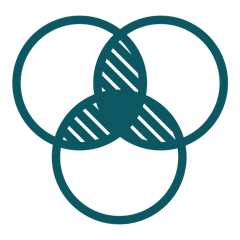The deep integration of social and behavioral sciences has expanded the landscape of public health from a mere battleground against pathogens to a field that recognizes a more nuanced etiology of disease interwoven with individual choices, community norms, and systemic influences. Recognition of the greater social contexts that define health has inspired a new direction in the field: The Social and Behavioral Sciences.
The World Health Organization (WHO) defines social and behavioral sciences in the context of public health as referencing the cognitive, social and environmental catalysts or inhibiting health-related behaviors. The field of public health hasn’t always placed such heavy focus on the social influences of health, however, research on the intricate relationship between social factors and health outcomes has been accumulating for centuries. Nineteenth century social epidemiology pioneer Louis Rene-Velereme conducted path-breaking research on poverty and health in Parisian neighborhoods and presented some of the earliest documented work seeking to understand how social inequities may breed disparate rates of disease. However, at the time, even Villerme defaulted to the narrowest of explanations for higher burdens of infant and child mortality in the city's poorest neighborhoods, and hypothesized that people of lower status don’t behave in very healthy ways. Not long after Villerme’s studies were published, the etiology of Tuberculosis was being heavily postulated, and French physician Hermann Pidoux argued for a fundamentally social etiology of the disease.
At the time, this view was too radically anti-contagionist to gain traction, especially considering Robert Koch’s newly discovered Germ Theory. However, Pidoux believed that recognizing the social etiologies of diseases could direct medicine towards domains where preventive measures, public health initiatives, and governmental involvement could fruitfully intervene, and with that he was spot on.
Since Velerme, and Pidoux the field has evolved immensely and public health work now places great focus on the social, cultural, economic and behavioral contexts that influence health.
Social and behavioral sciences are especially relevant now as we enter an era of chronic non-communicable disease, and shift away from communicable diseases as the main drivers of morbidity and mortality worldwide. This epidemiological transition begs a holistic view of health that goes beyond medical interventions alone. It requires an understanding of the intricate interplay between individual behaviors, societal norms, and the social and economic structures that profoundly shape health outcomes.
Social and behavioral sciences provide the theoretical frameworks and methodological tools necessary to explore these complexities and inform targeted interventions that address the root causes of health disparities. Social and behavioral sciences embrace a multidisciplinary approach integrating insights from psychology, sociology, anthropology, economics, and other social sciences. With this, public health practitioners can more effectively address the multifaceted challenges posed by the rise of chronic diseases and promote health equity on a global scale.
This article explores the role of social and behavioral sciences in understanding health disparities, promoting health equity, and improving population health outcomes, and introduces career insights for anyone interested in joining the rankings of social and behavioral scientists in public health.






